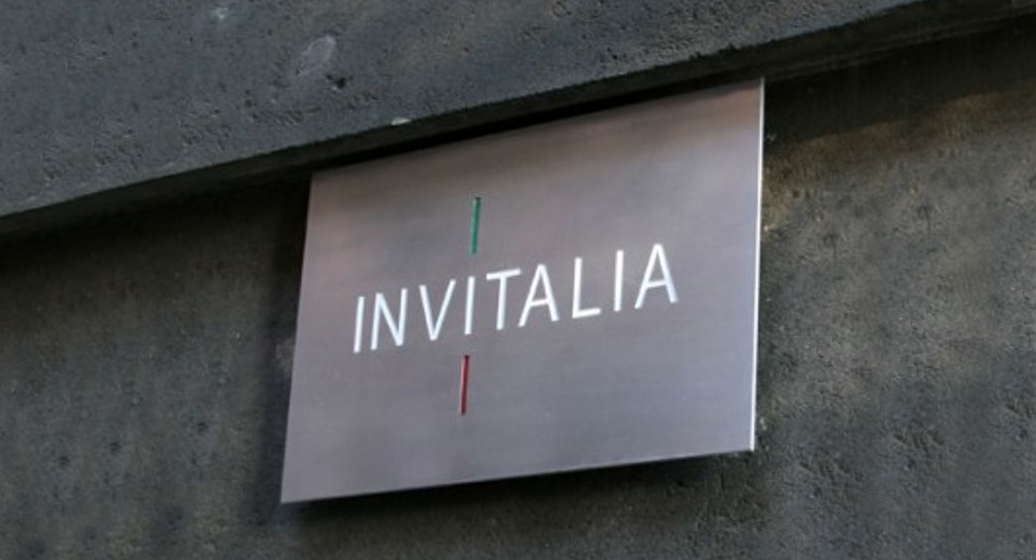What Conte designed for Invitalia di Arcuri

Why have the auditors expressed a negative opinion on Invitalia's financial statements? Giuseppe Liturri's analysis
The echo of the news of the approval of Invitalia's 2020 financial statements lasted only a few days on which the statutory auditors of Deloitte expressed heavy remarks that did not in any case affect the decision of the sole shareholder, that is the Ministry of the Economy, to grant anyway his approval.
It does not happen every day that an auditing firm takes a stand against the assessments made by the directors when drawing up the financial statements, coming one step away from formulating a negative opinion. Even more unusual is that this happens with reference to fully publicly owned companies, such as Invitalia, which has seen Domenico Arcuri in the role of CEO since 2007.
What was initially declassified as a goat wool dispute reserved for insiders, hides significant implications also of a political nature. In a nutshell, a plan to rationalize and dispose of the real estate portfolio held by Invitalia involved the recognition of heavy write-downs to bring the book values into line with market values. These are 20.4 million in write-downs, which could further increase when the disposals are actually carried out. In a normal world and in any other Italian company (and not only), these write-downs would have had to reduce the profit in the income statement and therefore worsen the income performance that Arcuri could have shown to its shareholder in via XX Settembre.
But in May 2020, under the Giallorossi government led by Giuseppe Conte, in front of this prospect, the cry “Save Private Ryan” rang out, in this case played not by Tom Hanks but by Arcuri. And so a wise hand inserted in article 47, among the 266 articles of the Relaunch Decree , a provision that provided that such possible write-downs were recorded "exclusively in the balance sheet accounting records". As if the income statement did not exist. As if, faced with a glass that leaks water, it was sufficient to declare that the new water level is lower than that of the previous year, without giving account of the flow and its causes.
The technical report of the time justifies this rule as essential to obtain a "mitigation and neutralization of the impact on the income statement" and therefore to allow the planned rationalization and disposal operation which thus obtains the "sustainability requirement". A precedent dating back to 2005 is also cited.
But let's come to July of this year. In drafting the 2020 financial statements, the directors shield themselves from that rule and invoke it to derogate from the international accounting standards which effectively provide for this possibility "in the presence of exceptional cases". They argue, with the comfort of the board of statutory auditors and an "authoritative opinion", that Article 47 is just an example of the legal typing of an exceptional case. Apparently a perfect construction: the accounting principles, to be derogated, require an exceptional case, and what could be better than creating it and crystallizing it in a law, written ad hoc a few months earlier?
But the plan and the extensive justifications of Arcuri and his board did not stand up to the scrutiny of the auditors who wrote "that the circumstances do not exist" for the derogation from the accounting principles. None of the exemptions invoked by the directors held up. Not the exemption that such losses are "substantially imposed by law" in execution of a due act, such as the rationalization and disposal plan: if there are losses, they must be recognized according to correct accounting principles, and their cause is not an exemption. The reason for the particular conditions of the real estate market that negatively impact on the extent of the devaluation does not even hold up: what do we do, do we bend the accounting principles to the more or less favorable trend of the market? What if the values were even lower tomorrow?
The thing that is really perplexing is that according to the directors, recognizing write-downs of approximately 20 million in the income statement, as is usually done, would have led to "misleading and meaningless results" and would have prevented "faithfully representing the company's performance." and the ability of management to administer company resources ". But these devaluations, harbingers of actual future losses, have not been parachuted from Mars and are part of the overall management results, albeit (fortunately) not recurring every year. If the subsidiaries Italia Turismo and Invitalia Partecipazioni have assets recorded in their financial statements at values well above the market values, it is normal for the divestment process to bring out these differences. Indeed, it is rather strange that such losses in value have not already emerged in previous financial statements. There is no exceptional case. Above all because, as reported in the statement of comprehensive consolidated profitability, noting those write-downs, Invitalia's financial statements would have closed with a profit of around 20 million, in line with that of 2019. In short, the result of the income statement that would have remained was not at risk. largely positive also including the write-downs. Instead, it rose to 37 million and the Invitalia press release was able to triumphalistically welcome the growth of 159%.
And it was this prospect that perhaps saved Arcuri and his advice from the resounding total rejection by the auditors.
That table, hidden in the folds of the financial statements, reducing the result from 37 to 20 million, allowed the auditors, while blatantly denying the exception invoked by the directors, to assess the not-so-pervasive error and formulate a judgment just one step below. of rejection without appeal.
Thus Arcuri managed to weaken a hurricane to a summer storm, not without loss of credibility.
This is a machine translation from Italian language of a post published on Start Magazine at the URL https://www.startmag.it/economia/che-cosa-ha-architettato-conte-per-invitalia-di-arcuri/ on Sat, 31 Jul 2021 05:25:41 +0000.
